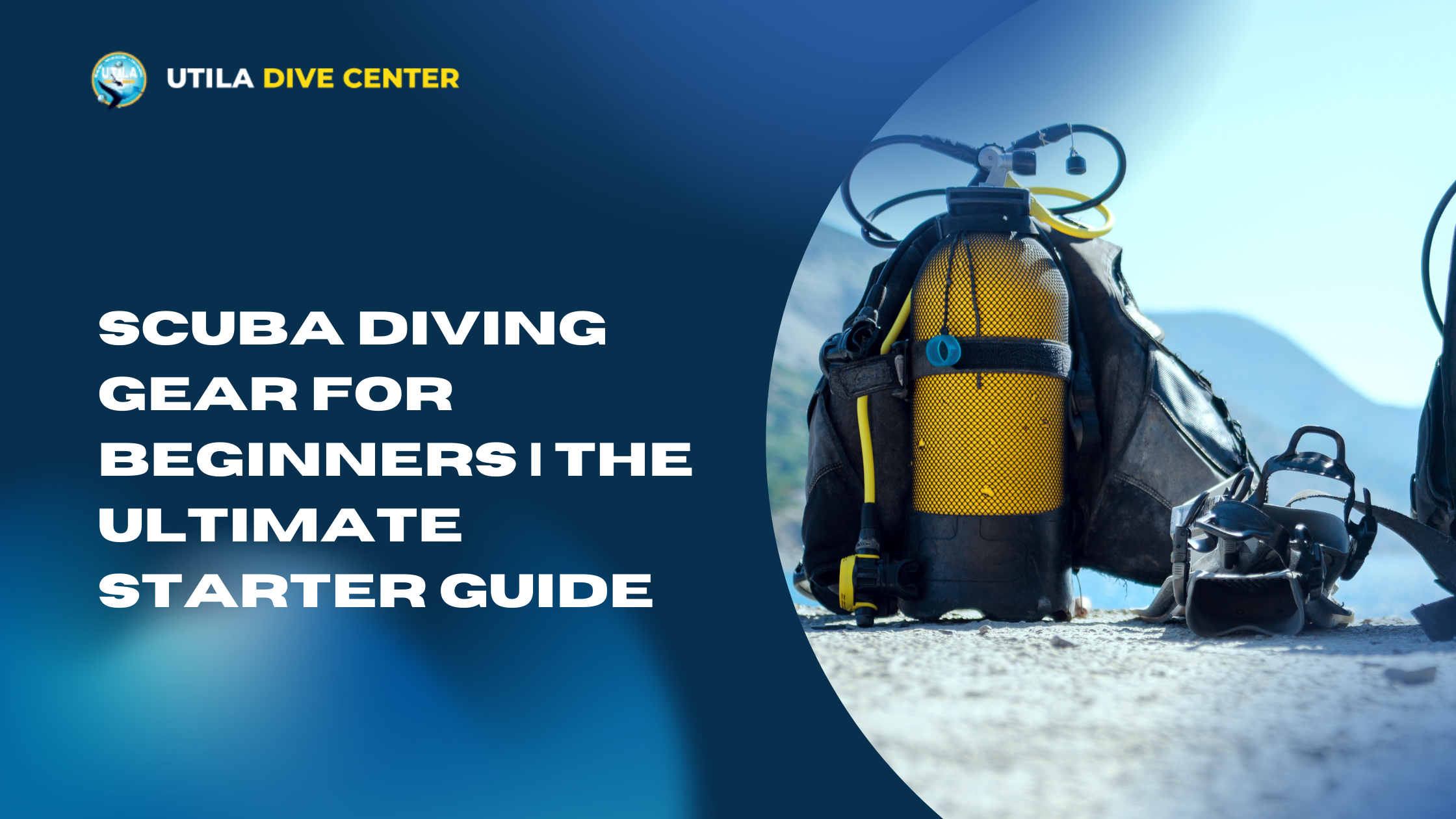
SCUBA Diving Gear for Beginners | The Ultimate Starter Guide
SCUBA Diving Gear for Beginners | The Ultimate Starter Guide
By: Manny Lagos | Date: 2025-02-18T08:22:50.721Z
So, you’ve finally decided to take the plunge and jump into the underwater world– congratulations! Believe us or not, SCUBA diving is an experience like no other. You get to step into a whole new world filled with beautiful marine life and unforgettable moments– how exciting is that? But before you gear up and go in, let’s talk about the basics.
As a beginner, picking the right SCUBA gear is super important– it’s all about keeping you comfortable, safe, and confident underwater. So we’ve come up with this guide to break down the must-have SCUBA diving gear for beginners and share a few simple tips to make your first dive memorable and stress-free.
Let’s begin!
The Importance of Selecting the Right Gear
Safety First
When it comes to SCUBA diving, safety is paramount. A well-fitted, high-quality, starter SCUBA gear ensures that you can move freely, breathe easily, and tackle any surprises the ocean might throw your way.
With factors like temperature, visibility, and pressure in play, having a dependable beginner SCUBA gear makes all the difference. For instance, a good BCD helps you float like a pro and a well-functioning regulator makes sure every breath is effortless.
The right gear also acts as your lifeline and shields you from potential risks while you explore the underwater world.
Improving Comfort and Experience
At Utila Dive Center, we believe diving should be all about experiencing the magic of the underwater world– not fussing around with uncomfortable beginner dive gear. With the best SCUBA diving gear for beginners, including a well-fitted mask and flexible fins, you can truly focus on that beautiful sea turtle swimming by, without any distractions.
Think about it: when your gear fits perfectly, the entire experience feels unreal. No leaking masks, no pinching fins, no fogging– just you and the ocean. Plus, as you gain more experience, you’ll quickly realize the importance of investing in comfortable, high-quality SCUBA diving equipment.
Essentials of Beginner SCUBA Gear
Now that we’ve covered why gear matters, let’s clear the basics. These essentials form the foundation of your SCUBA kit and are a great place to start for beginners!
Diving Mask
A diving mask is your ticket to uninterrupted, gorgeous views underwater, so picking the right one is super important! Go for a snug, pinch-free fit, tempered glass lenses, and a strong seal. Don’t forget to test a few options to find the perfect match. After all, comfort is everything. With the right mask in hand, you’ll be all set to dive. Who knows, you might even uncover a hidden treasure in the ocean!
Pro tip: A little anti-fog solution goes a long way in keeping your vision crystal clear.
Snorkel
Even though you’ll rely on your regulator underwater, a snorkel is handy for surface swimming and conserving air from your tank. Opt for a simple, easy-to-use snorkel with a purge valve for quick clearing.
Using a snorkel is particularly helpful when you’re waiting at the surface before or after a dive. It reduces the amount of air you use from your tank, giving you more time to explore underwater. Plus, practicing with a snorkel can improve your breathing techniques, which are essential for energy conservation during dives.
A snorkel might not seem that important when you have your underwater regulator with you in the ocean, but it’s a total game-changer at the surface. It lets you preserve your tank air while waiting or swimming, giving you more time to explore the Caribbean waters.
Choose a simple snorkel with a purge valve– it makes clearing water very easy. Using a snorkel also helps you practice controlled breathing, which is crucial for conserving energy during your dives.
Fins
Fins allow you to move effortlessly in the water. As a beginner, always choose fins that are lightweight, and adjustable. Full-foot or open-heel styles both work– just pick what feels right for you.
A good pair of fins helps you swim against the flow, navigate currents, reduce leg fatigue, and reach those stunning dive spots without breaking a sweat.
Key Equipment for SCUBA Diving
With the essentials covered, let’s move on to the more advanced pieces of SCUBA diving gear for beginners that are crucial for diving deeper and staying longer underwater.
Wetsuits and Drysuits
Depending on the water temperature, you’ll need either a drysuit or a wetsuit. To break it down for you in simple words, wetsuits provide insulation by trapping a thin layer of water against your skin, whereas drysuits keep you completely dry. So, if you’re diving in warm, tropical waters, a wetsuit might do the trick but if you’re jumping into colder waters, a drysuit should be your top pick!
Regulator and Alternate Air Source (Octopus)
What delivers air from your tank to your mouth? A regulator. It’s impossible to go diving without a reliable regulator in your gear. Go for one with an easy-breathing mechanism and don’t forget to carry the octopus too– your backup air source, for an extra layer of safety.
The octopus is extremely crucial in emergency situations, it allows you to share air with a fellow diver or have a backup in case of primary failure.
Buoyancy Control Device (BCD)
Most divers call it the BCD or BC (Buoyancy Control Device) for short, and it’s a must-have for people looking to get serious about their dives. This piece of SCUBA diving gear for beginners is essential for helping you stay buoyant underwater– in simple words, it helps you float at just the right depth. By adding or releasing air from the BCD, you can stay “neutrally buoyant,” which is every diver’s goal.
But it does a lot more than just that. Your BCD also holds your tank and allows you to clip things like your compass, dive light, or cutting tool. Some BCDs even have built-in weight pockets, so you won’t need a separate weight belt. Ultimately, it’s all about keeping things comfortable while you dive!
Dive Computer
A dive computer tracks important stuff like your dive time, depth, and nitrogen in order to keep you safe. As a beginner, you don’t need anything advanced, just a simple, easy-to-read model is more than enough.
It is meant to take all the guesswork out of diving and ensure you stay within safe limits. A dive computer is especially useful for planning safe ascents and for tracking no-decompression limits.
Managing Costs for Beginner SCUBA Gear
Diving into the world of SCUBA diving can definitely feel a bit overwhelming, especially when you look at the costs. But don’t stress– there are several smart ways to manage your budget while still making sure you make the most out of your experience!
Should You Rent or Buy?
For the first few dives, renting gear can be a budget-friendly option. Rental equipment is great for trying out different styles and brands before making a huge investment. However, owning your own gear has its own perks. It offers a customized fit, better hygiene, and long-term savings if you plan to become a regular diver.
Renting also means you don’t have to worry about carrying heavy gear along, especially if you’re traveling to far-off dive destinations. On the other hand, buying your own equipment gives you the time to get familiar with how everything works, and get comfortable underwater.
Note: All courses and dive packages at Utila Dive Center include high-quality rental equipment, so you don’t have to worry about gear– just focus on having fun!
Prioritizing Essential Gear
Putting together your SCUBA kit? Prioritize items like:
- Mask
- Snorkel
- Fins
- Drysuit/Wetsuit
- Dive Computer
- BCD
- Regulator and Alternate Air Source
Conclusion
Diving into the underwater world is a unique experience and having the right diving gear makes it much easier. By prioritizing comfort, safety, and smart investment choices, you’ll set yourself up for successful dives in no time!
Still confused as to where to begin? Let Utila Dive Centre help you build your gear and get started on your SCUBA journey. From customized gear recommendations to comprehensive training, we’re here to make sure you thrive underwater!
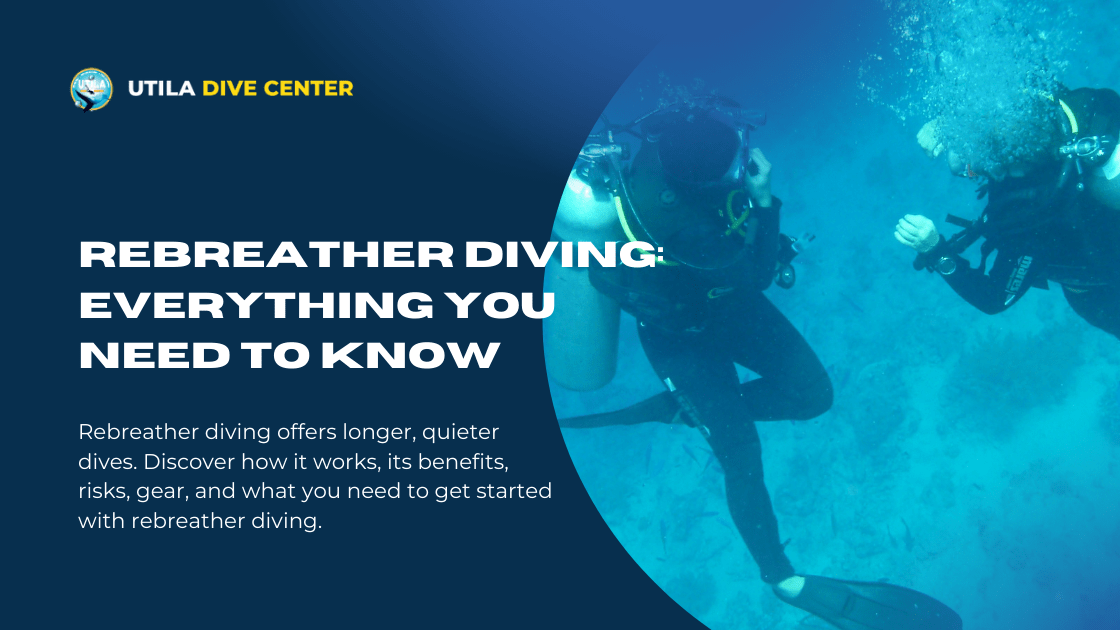
Rebreather Diving: Everything You Need to Know
Rebreather diving offers longer, quieter dives. Discover how it works, its benefits, risks, gear, and what you need to get started with rebreather diving.
Read more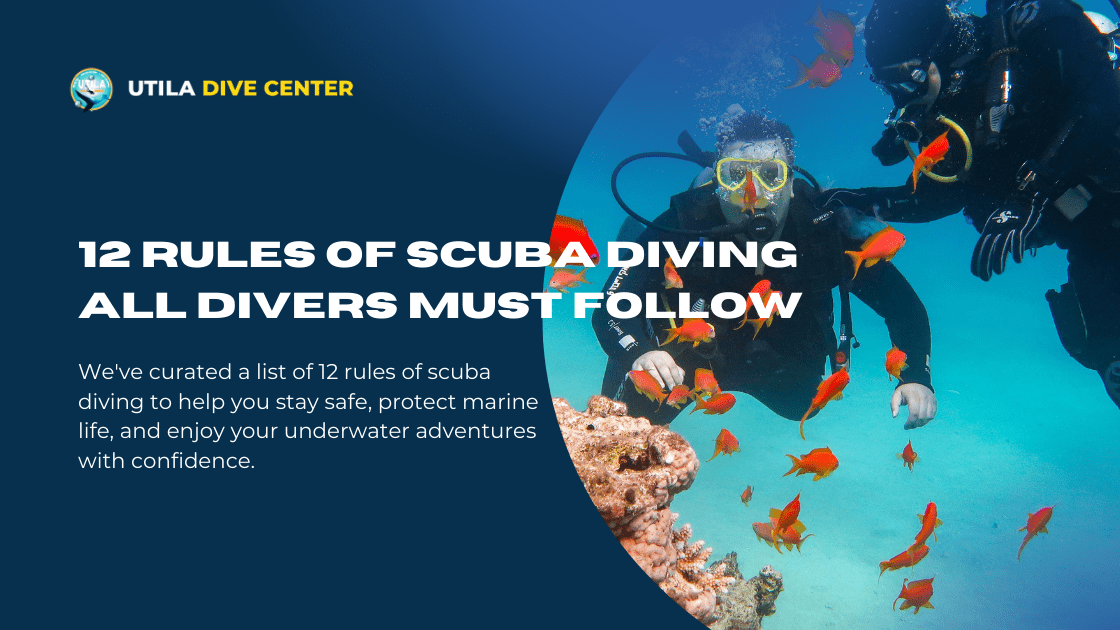
12 Rules of Scuba Diving All Divers Must Follow
We've curated a list of 12 rules of scuba diving to help you stay safe, protect marine life, and enjoy your underwater adventures with confidence.
Read more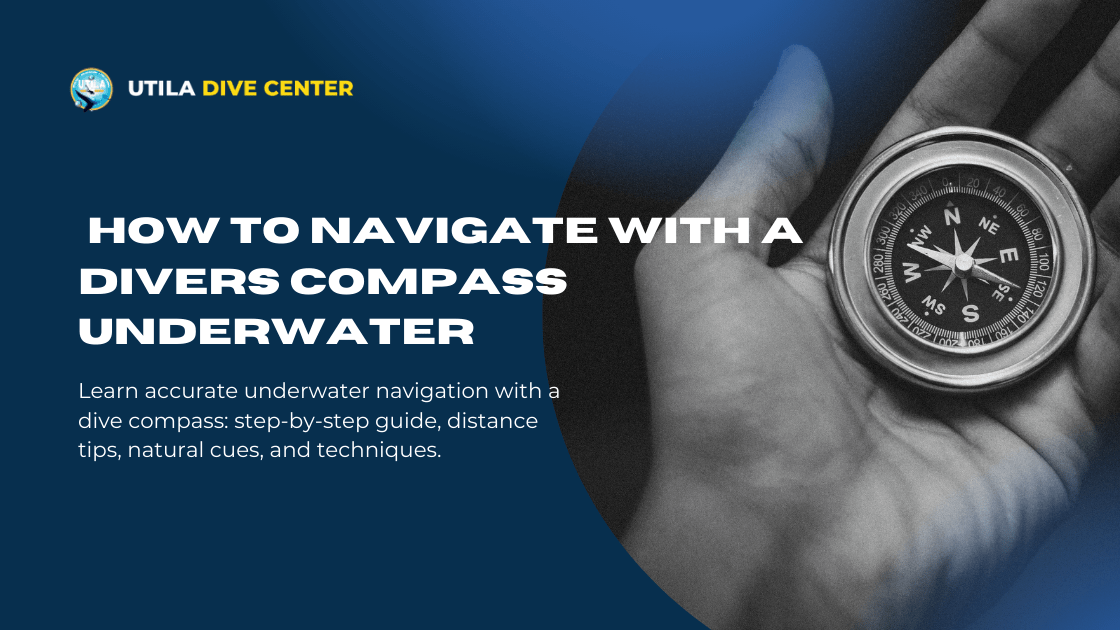
How to Navigate With a Divers Compass Underwater
Learn accurate underwater navigation with a dive compass: step-by-step guide, distance tips, natural cues, and techniques.
Read more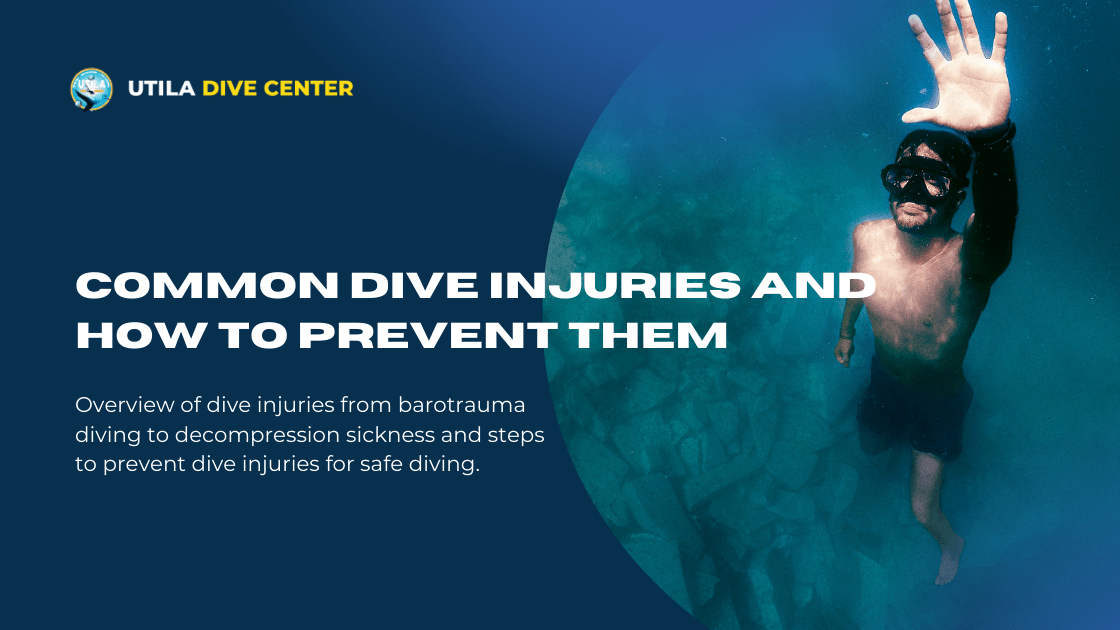
Common Dive Injuries and How to Prevent Them
Overview of dive injuries from barotrauma diving to decompression sickness and steps to prevent dive injuries for safe diving.
Read more